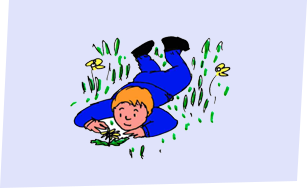Science

Most children come to our school with an innate curiosity in the patterns, details and characteristics of the living and non-living things in and around them. They love using their hands to explore the world around them and they are very keen to share what they have discovered. We aim to foster this awe and wonder about their world and develop their understanding of what Science is. We aim for them to build their scientific knowledge and develop a range of scientific skills, with enthusiasm and delight. We want them to understand that their learning in Science is integral to their learning about the real world all around them and we want them to develop their understanding of how the knowledge they gain in Science, connects with other curriculum areas.
We use PLAN Primary Science resources to support our planning and assessment in Science.
language development
learning behaviours
physical activity
cultural capital
We aim to make Science teaching accessible to and enjoyable for all children. Common misconceptions are outlined on PLAN’s unit overviews so that teachers can anticipate and pre-teach specific core knowledge or concepts that they think children may find tricky.
Cross -curricular opportunities are also identified on long and medium term plans in order to ensure that children can make links between Science and other curriculum areas and remember more.
Visits to school by ‘Animal Encounters’ and the ‘Space Dome’, aim to enrich children’s learning experiences in Science and make them memorable.
creative curriculum design and progression
In Key Stage One, PLAN’s ‘Knowledge Matrices’ for each topic support our teachers to plan sequences of science lessons that include the relevant National Curriculum statements for Science. They highlight references to prior learning, future learning, key learning and key vocabulary. We aim to also use PLAN’s ‘Working Scientifically’ matrices to ensure the children are given the opportunity to work scientifically, in different contexts, in Key Stage One.
We aim to use examples of work for each topic, provided by PLAN Primary Science, to support us to make summative assessment judgements at the end of each topic.
We also use PLAN’s ‘Knowledge Matrices’ for EYFS to teach the foundations of KS1 Science as part of the children’s learning in understanding of the world.If you were to walk into a Science lesson at Garden Suburb Infant School, you would see:
- All children engaged and enthusiastic to gain science knowledge.
- Children who can work independently, and are also keen to share and work co-operatively. They take turns and are keen to discuss their knowledge, ideas and findings.
- Children using subject specific vocabulary, appropriate to their age and stage of development, with understanding and confidence, in order to talk about different aspects of their work
- A focus on enquiry and working scientifically, embedded in relevant lessons.
- Teachers demonstrating secure subject knowledge, teaching lessons which are explicitly adapted to be both ambitious and to meet the needs of pupils with Special Educational Needs.
- Teachers and support staff presenting information clearly, addressing misconceptions and encouraging appropriate discussion to learn key concepts.
- Teachers and support staff helping children embed and use knowledge, not just memorise disconnected facts.
- A powerful learning environment, including “working walls”, which reflect their learning journey.

